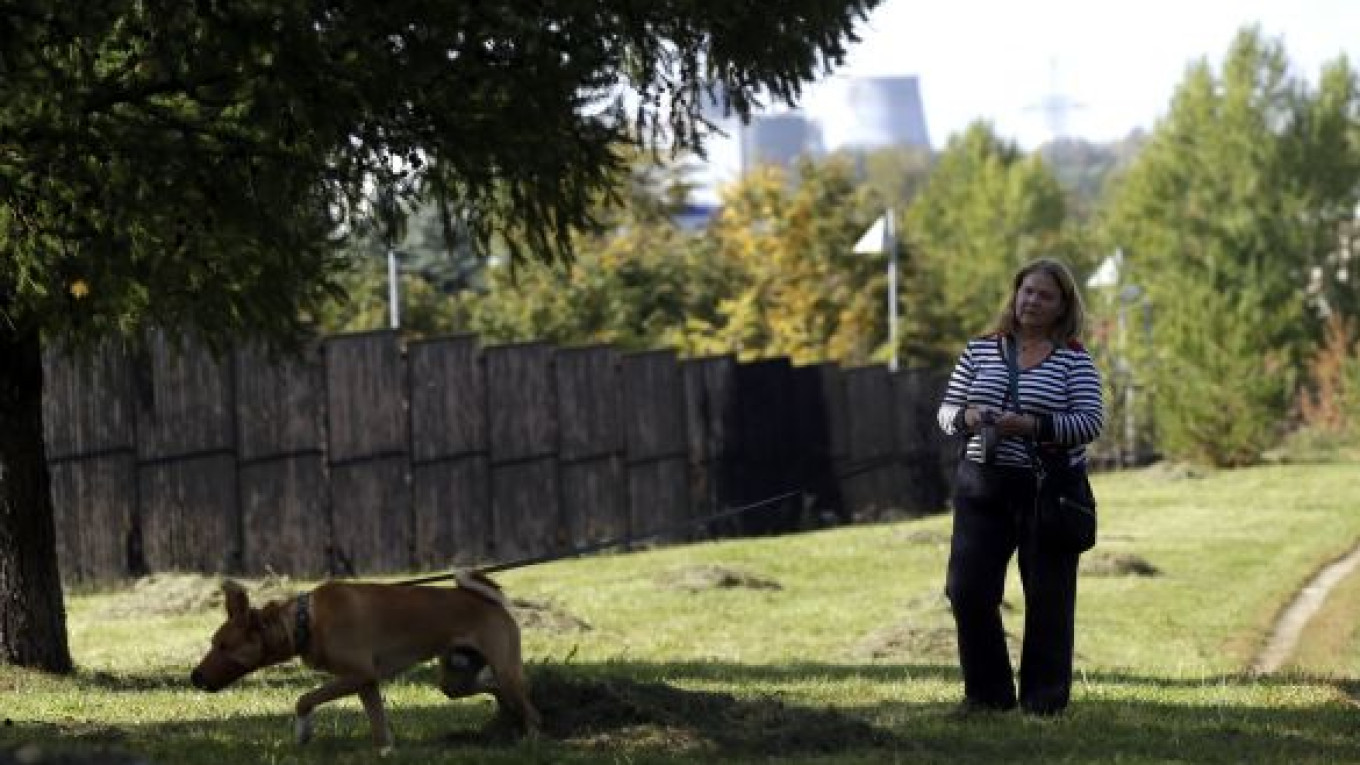Vera Lesovets held up photographs of her dog, Yasha, a spunky 5-year-old corgi, nipping playfully at the heels of a German shepherd twice her size.
But Yasha's life was cut short this week: After snacking on something in a Moscow park, she fell into a seizure at Lesovets' apartment and began foaming at the mouth. The family rushed her to a nearby animal clinic, where the veterinarian said this was the sixth case he had seen that week, and there was nothing he could do.
On Friday police opened a criminal investigation into what they suspect are poisonings by dog killers. Cruelty to animals is common in Russia and animal protection laws are rarely enforced, but reports of as many as 70 dead dogs this week have spurred the police to take action.
While some residents suspected that a vigilante matriarch, wary of her children being bitten, might be the cause of the attacks, Lesovets was quick to suspect a more malicious culprit: dog hunters, a kind of deadly hobby gaining ground in the Russian online community.
Dog hunting forums — the most well-known of which are Vreditelyam.net and Pest.net — are populated by those who call themselves "volunteers" and provide graphic photos of their trophy killings. The sites require extensive registration and identification processes for participants.
"It's a whole community. They have websites," a young event manager said. "They write how they kill them, post photographs, tell you which poison is better and where to buy it."
In the case of this neighborhood's dogs, the poison of choice was amanita phalloides, also known as the death cap mushroom, which has no known antidote and is dangerous for both animals and humans.
Before the attacks, the 50th Anniversary of October park in southwest Moscow, near the Prospekt Vernadskogo metro station, allowed residents to give their dogs a moment's respite from cramped city living and frolic without a leash in the grass or in the snow.
Owners no longer feel safe to do that, as the number of slain dogs keeps growing. Police estimates have ranged from 40 to 70 killings, based on complaints filed by owners. According to the website of one nearby veterinary clinic alone, they had received about 20 cases that week, 14 of them fatal.
The police were first notified of the poisonings early this week and formally opened a criminal investigation on Friday.
Masha Beshina was out walking her dog on Thursday when she discovered some pieces of ham suspiciously scattered in the part of the park where she usually walks her dog.
"Unfortunately the police don't take measures," said the middle-aged teacher. "Because for them a dog is not really something that exists."
Russian law calls for a prison sentence of up to two years for those who kill or abuse animals, but animal rights activists say it has been rarely enforced.
"We need investigative bodies, the police, the courts, the judges to start working," said Darya Khmelnitskaya, director of Virta, a charitable fund for animal welfare. "The legal clause already exists."
She said that one way to target dog killers would be to track IP addresses of the users who spread information about it online or shut down the sites completely. While some of the sites have been closed, information is still easily spread by individuals through websites such as Vkontakte, the largest Russian social network.
According to Khmelnitskaya, only nine cases against dog hunters in Moscow have made it to court since 2011, with just one ending in a conviction.
On the site Vreditelyam.net, now moved to the domain vredy.org, the owners state in their manifesto that they consider themselves keepers of the peace: Since Soviet times, the population of stray dogs, which now reaches an estimated 25,000 in Moscow alone, has ballooned, and fear of bites and attacks has grown as well.
But just as the population of strays has grown, Muscovites also have long been a friend to many of the shaggy mutts. Dog hunting has touched a nerve in a society where stray animals have traditionally been ignored by the state and instead taken in by big-hearted citizens. One group established on Vkontakte in opposition to the dog hunters has attracted almost 4,000 members.
Most of the local residents said their dogs were former strays found either on the streets or in Moscow's overcrowded, underfunded shelters.
"I took these dogs off the street from homeless people four years ago," said Oleg Maksimov, a middle-aged man who said he works for a construction company.
"How can I wait for someone to poison these dogs, these dogs that I saved from a likely death?
Related articles:
A Message from The Moscow Times:
Dear readers,
We are facing unprecedented challenges. Russia's Prosecutor General's Office has designated The Moscow Times as an "undesirable" organization, criminalizing our work and putting our staff at risk of prosecution. This follows our earlier unjust labeling as a "foreign agent."
These actions are direct attempts to silence independent journalism in Russia. The authorities claim our work "discredits the decisions of the Russian leadership." We see things differently: we strive to provide accurate, unbiased reporting on Russia.
We, the journalists of The Moscow Times, refuse to be silenced. But to continue our work, we need your help.
Your support, no matter how small, makes a world of difference. If you can, please support us monthly starting from just $2. It's quick to set up, and every contribution makes a significant impact.
By supporting The Moscow Times, you're defending open, independent journalism in the face of repression. Thank you for standing with us.
Remind me later.


